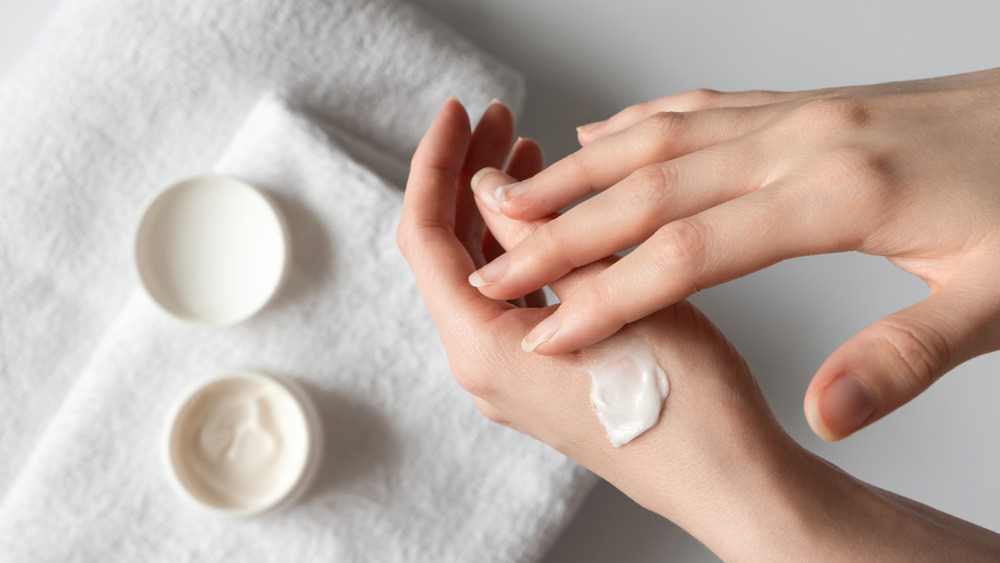Here's The Difference Between Moisturizer And Serum
Skincare routines continue to get longer with each year, making knowledge of the popular products less and less relevant. Especially with the countless options for age-fighting, clarifying and exfoliating products, the purposes of each of these can often get lost in the shuffle. While many people have both a serum and a moisturizer in their medicine cabinet, there are a few subtle differences that are important to note when it comes to maximizing your products.
Byrdie explains that serums bring your skin various nutrients and benefits. Dr. Hartman tells the outlet, "Serums are typically lightweight formulations that deliver actives. They are usually thin and absorbent, leaving little if anything remaining on the surface of the skin." Generally, you can use less of this product on your skin with a few drops that absorb into your cells rather than a big pump of lotion. They come in various types, either as a liquid or thicker substance that you can apply to your face.
Plus, serums usually target a specific issue. Dermatologist, Dr. Zenovia Gabriel tells The Daily Beast, "Facial serums are designed to be highly concentrated formulations that deliver targeted active ingredients to address your specific skin concerns whether it's dryness, aging or acne."
Dr. Gabriel also explains that you may not need a serum if your moisturizer provides the specific benefits you need. But, if you're looking for a brightening or anti-aging boost, you can use this additive based on your needs.
Moisturizers are a must — serums, not so much
While serums act as supplements to a well-rounded skincare routine, moisturizers are always non-negotiable — even for oily skin. The Daily Beast explains that moisturizers obviously lock hydration into your skin cells while protecting its external barrier. Adding your lotion to cleansed skin is a must for a healthy glow that doesn't look patchy or dry. Dr. Robinson tells Byrdie, "Additionally, [moisturizers] can enhance the functioning of the stratum corneum (the uppermost layer of skin that's made up of fat and oil skin cells) to help retain moisture."
If you have oily skin, find a product that's lightweight and oil-free to reap the hydrating benefits without the breakouts, The Daily Beast suggests. The same goes for your serum — opt for a lighter product to make sure it doesn't lay on your skin and create blemishes.
While they both serve different purposes, serums and moisturizers can add different benefits to your routine. Byrdie also notes that, for intense skin issues such as spots or fine lines, you'll likely need to combine the beneficial properties of your lotion with a serum for a powerful healing elixir. Think of your serum as your boost of nutrients while your lotion provides the nourishing main course — knowing that you can use one to enhance the healing properties of the other.

